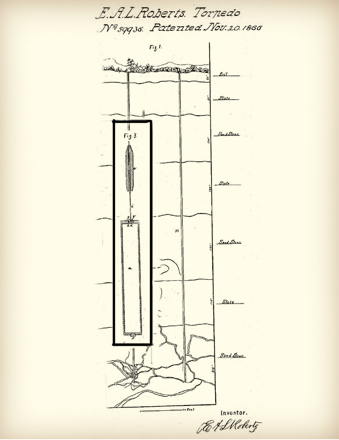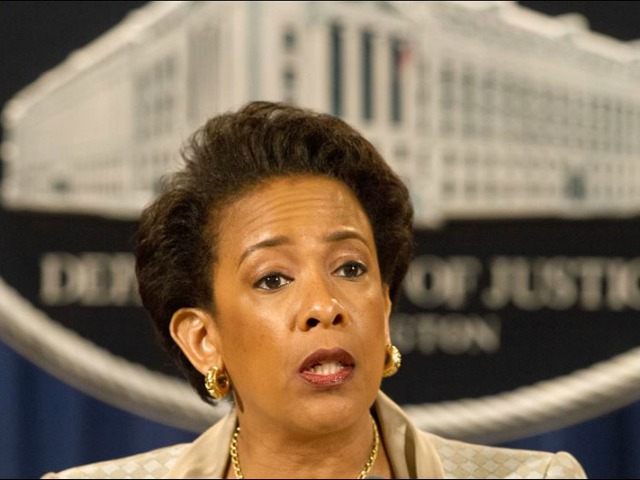Eight hundred years ago next month, on a reedy stretch of
riverbank in southern England, the most important bargain in the history
of the human race was struck. I realize that’s a big claim, but in this
case, only superlatives will do. As Lord Denning, the most celebrated
modern British jurist put it, Magna Carta was “the greatest
constitutional document of all time, the foundation of the freedom of
the individual against the arbitrary authority of the despot.”
It
was at Runnymede, on June 15, 1215, that the idea of the law standing
above the government first took contractual form. King John accepted
that he would no longer get to make the rules up as he went along. From
that acceptance flowed, ultimately, all the rights and freedoms that we
now take for granted: uncensored newspapers, security of property,
equality before the law, habeas corpus, regular elections, sanctity of
contract, jury trials.
Magna Carta is Latin for “Great Charter.”
It was so named not because the men who drafted it foresaw its epochal
power but because it was long. Yet, almost immediately, the document
began to take on a political significance that justified the adjective
in every sense.
The bishops and barons who had brought King John
to the negotiating table understood that rights required an enforcement
mechanism. The potency of a charter is not in its parchment but in the
authority of its interpretation. The constitution of the U.S.S.R., to
pluck an example more or less at random, promised all sorts of
entitlements: free speech, free worship, free association. But as Soviet
citizens learned, paper rights are worthless in the absence of
mechanisms to hold rulers to account.
Magna Carta instituted a form of conciliar rule that was to develop
directly into the Parliament that meets at Westminster today. As the
great Victorian historian William Stubbs put it, “the whole
constitutional history of England is little more than a commentary on
Magna Carta.”
And
not just England. Indeed, not even England in particular. Magna Carta
has always been a bigger deal in the U.S. The meadow where the
abominable King John put his royal seal to the parchment lies in my
electoral district in the county of Surrey. It went unmarked until 1957,
when a memorial stone was finally raised there—by the American Bar
Association.
Only now, for the anniversary, is a British
monument being erected at the place where freedom was born. After some
frantic fundraising by me and a handful of local councilors, a large
bronze statue of Queen Elizabeth II will gaze out across the slow, green
waters of the Thames, marking 800 years of the Crown’s acceptance of
the rule of law.
Eight hundred years is a long wait. We British
have, by any measure, been slow to recognize what we have. Americans, by
contrast, have always been keenly aware of the document, referring to
it respectfully as
the Magna Carta.
Why? Largely because
of who the first Americans were. Magna Carta was reissued several times
throughout the 14th and 15th centuries, as successive Parliaments
asserted their prerogatives, but it receded from public consciousness
under the Tudors, whose dynasty ended with the death of Elizabeth I in
1603.
In the early 17th century, members of Parliament revived
Magna Carta as a weapon in their quarrels with the autocratic Stuart
monarchs. Opposition to the Crown was led by the brilliant lawyer Edward
Coke (pronounced Cook), who drafted the first Virginia Charter in 1606.
Coke’s argument was that the king was sidelining Parliament, and so
unbalancing the “ancient constitution” of which Magna Carta was the
supreme expression.
The early settlers arrived while these rows were at their height and
carried the mania for Magna Carta to their new homes. As early as 1637,
Maryland sought permission to incorporate Magna Carta into its basic
law, and the first edition of the Great Charter was published on
American soil in 1687 by William Penn, who explained that it was what
made Englishmen unique: “In France, and other nations, the mere will of
the Prince is Law, his word takes off any man’s head, imposeth taxes, or
seizes any man’s estate, when, how and as often as he lists; But in
England, each man hath a fixed Fundamental Right born with him, as to
freedom of his person and property in his estate, which he cannot be
deprived of, but either by his consent, or some crime, for which the law
has imposed such a penalty or forfeiture.”
There was a
divergence between English and American conceptions of Magna Carta. In
the Old World, it was thought of, above all, as a guarantor of
parliamentary supremacy; in the New World, it was already coming to be
seen as something that stood above both Crown and Parliament. This
difference was to have vast consequences in the 1770s.
The
American Revolution is now remembered on both sides of the Atlantic as a
national conflict—as, indeed, a “War of Independence.” But no one at
the time thought of it that way—not, at any rate, until the French
became involved in 1778. Loyalists and patriots alike saw it as a civil
war within a single polity, a war that divided opinion every bit as much
in Great Britain as in the colonies.
The American
Revolutionaries weren’t rejecting their identity as Englishmen; they
were asserting it. As they saw it, George III was violating the “ancient
constitution” just as King John and the Stuarts had done. It was
therefore not just their right but their duty to resist, in the words of
the delegates to the first Continental Congress in 1774, “as Englishmen
our ancestors in like cases have usually done.”
Nowhere, at this
stage, do we find the slightest hint that the patriots were fighting
for universal rights. On the contrary, they were very clear that they
were fighting for the privileges bestowed on them by Magna Carta. The
concept of “no taxation without representation” was not an abstract
principle. It could be found, rather, in Article 12 of the Great
Charter: “No scutage or aid is to be levied in our realm except by the
common counsel of our realm.” In 1775, Massachusetts duly adopted as its
state seal a patriot with a sword in one hand and a copy of Magna Carta
in the other.
I recount these facts to make an important, if
unfashionable, point. The rights we now take for granted—freedom of
speech, religion, assembly and so on—are not the natural condition of an
advanced society. They were developed overwhelmingly in the language in
which you are reading these words.
When we call them universal
rights, we are being polite. Suppose World War II or the Cold War had
ended differently: There would have been nothing universal about them
then. If they are universal rights today, it is because of a series of
military victories by the English-speaking peoples.
Various early
copies of Magna Carta survive, many of them in England’s cathedrals,
tended like the relics that were removed during the Reformation. One
hangs in the National Archives in Washington, D.C., next to the two
documents it directly inspired: the Declaration of Independence and the
Constitution. Another enriches the Australian Parliament in Canberra.
But
there are only four 1215 originals. One of them, normally housed at
Lincoln Cathedral, has recently been on an American tour, resting for
some weeks at the Library of Congress. It wasn’t that copy’s first visit
to the U.S. The same parchment was exhibited in New York at the 1939
World’s Fair, attracting an incredible 13 million visitors. World War II
broke out while it was still on display, and it was transferred to Fort
Knox for safekeeping until the end of the conflict.
Could there
have been a more apt symbol of what the English-speaking peoples were
fighting for in that conflagration? Think of the world as it stood in
1939. Constitutional liberty was more or less confined to the
Anglosphere. Everywhere else, authoritarianism was on the rise. Our
system, uniquely, elevated the individual over the state, the rules over
the rulers.
When the 18th-century statesman Pitt the Elder
described Magna Carta as England’s Bible, he was making a profound
point. It is, so to speak, the Torah of the English-speaking peoples:
the text that sets us apart while at the same time speaking truths to
the rest of mankind.
The very success of Magna Carta makes it
hard for us, 800 years on, to see how utterly revolutionary it must have
appeared at the time. Magna Carta did not create democracy: Ancient
Greeks had been casting differently colored pebbles into voting urns
while the remote fathers of the English were grubbing about alongside
pigs in the cold soil of northern Germany. Nor was it the first
expression of the law: There were Sumerian and Egyptian law codes even
before Moses descended from Sinai.
What Magna Carta initiated,
rather, was constitutional government—or, as the terse inscription on
the American Bar Association’s stone puts it, “freedom under law.”
It
takes a real act of imagination to see how transformative this concept
must have been. The law was no longer just an expression of the will of
the biggest guy in the tribe. Above the king brooded something more
powerful yet—something you couldn’t see or hear or touch or taste but
that bound the sovereign as surely as it bound the poorest wretch in the
kingdom. That something was what Magna Carta called “the law of the
land.”
This phrase is commonplace in our language. But think of
what it represents. The law is not determined by the people in
government, nor yet by clergymen presuming to interpret a holy book.
Rather, it is immanent in the land itself, the common inheritance of the
people living there.
The idea of the law coming up from the
people, rather than down from the government, is a peculiar feature of
the Anglosphere. Common law is an anomaly, a beautiful, miraculous
anomaly. In the rest of the world, laws are written down from first
principles and then applied to specific disputes, but the common law
grows like a coral, case by case, each judgment serving as the starting
point for the next dispute. In consequence, it is an ally of freedom
rather than an instrument of state control. It implicitly assumes
residual rights.
And indeed, Magna Carta conceives rights in
negative terms, as guarantees against state coercion. No one can put you
in prison or seize your property or mistreat you other than by due
process. This essentially negative conception of freedom is worth
clinging to in an age that likes to redefine rights as entitlements—the
right to affordable health care, the right to be forgotten and so on.
It
is worth stressing, too, that Magna Carta conceived freedom and
property as two expressions of the same principle. The whole document
can be read as a lengthy promise that the goods of a free citizen will
not be arbitrarily confiscated by someone higher up the social scale.
Even the clauses that seem most remote from modern experience generally
turn out, in reality, to be about security of ownership.
There
are, for example, detailed passages about wardship. King John had been
in the habit of marrying heiresses to royal favorites as a way to get
his hands on their estates. The abstruse-sounding articles about
inheritance rights are, in reality, simply one more expression of the
general principle that the state may not expropriate without due
process.
Those who stand awe-struck before the Great Charter
expecting to find high-flown phrases about liberty are often surprised
to see that a chunk of it is taken up with the placing of fish-traps on
the Thames. Yet these passages, too, are about property, specifically
the freedom of merchants to navigate inland waterways without having
arbitrary tolls imposed on them by fish farmers.
Liberty and
property: how naturally those words tripped, as a unitary concept, from
the tongues of America’s Founders. These were men who had been shaped in
the English tradition, and they saw parliamentary government not as an
expression of majority rule but as a guarantor of individual freedom.
How different was the Continental tradition, born 13 years later with
the French Revolution, which saw elected assemblies as the embodiment of
what Rousseau called the “general will” of the people.
In that
difference, we may perhaps discern explanation of why the Anglosphere
resisted the chronic bouts of authoritarianism to which most other
Western countries were prone. We who speak this language have always
seen the defense of freedom as the duty of our representatives and so,
by implication, of those who elect them. Liberty and democracy, in our
tradition, are not balanced against each other; they are yoked together.
In February, the four surviving original copies of Magna Carta were
united, for just a few hours, at the British Library—something that had
not happened in 800 years. As I stood reverentially before them, someone
recognized me and posted a photograph on Twitter with the caption: “If
Dan Hannan gets his hands on all four copies of Magna Carta, will he be
like Sauron with the Rings?”
Yet the majesty of the document
resides in the fact that it is, so to speak, a shield against Saurons.
Most other countries have fallen for, or at least fallen to, dictators.
Many, during the 20th century, had popular communist parties or fascist
parties or both. The Anglosphere, unusually, retained a consensus behind
liberal capitalism.
This is not because of any special property
in our geography or our genes but because of our constitutional
arrangements. Those constitutional arrangements can take root anywhere.
They explain why Bermuda is not Haiti, why Hong Kong is not China, why
Israel is not Syria.
They work because, starting with Magna
Carta, they have made the defense of freedom everyone’s responsibility.
Americans, like Britons, have inherited their freedoms from past
generations and should not look to any external agent for their
perpetuation. The defense of liberty is your job and mine. It is up to
us to keep intact the freedoms we inherited from our parents and to pass
them on securely to our children.
Mr. Hannan is a British
member of the European Parliament for the Conservative Party, a
columnist for the Washington Examiner and the author of “Inventing
Freedom: How the English-speaking Peoples Made the Modern World.”

 Projected growth of the wind industry over the next 35 years.
Projected growth of the wind industry over the next 35 years.

















